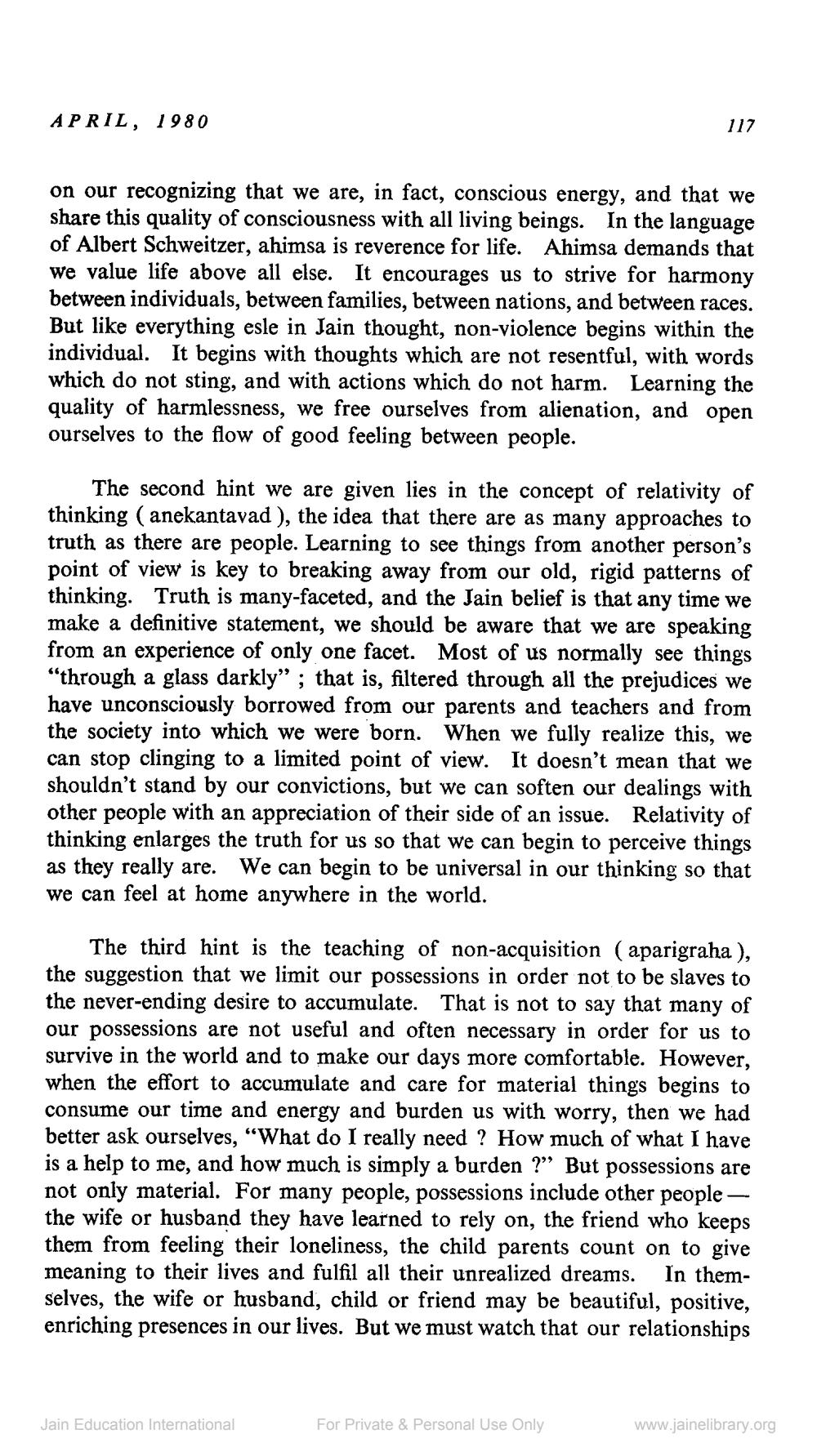Book Title: Jain Journal 1980 04 Author(s): Jain Bhawan Publication Publisher: Jain Bhawan Publication View full book textPage 5
________________ APRIL, 1980 on our recognizing that we are, in fact, conscious energy, and that we share this quality of consciousness with all living beings. In the language of Albert Schweitzer, ahimsa is reverence for life. Ahimsa demands that we value life above all else. It encourages us to strive for harmony between individuals, between families, between nations, and between races. But like everything esle in Jain thought, non-violence begins within the individual. It begins with thoughts which are not resentful, with words which do not sting, and with actions which do not harm. Learning the quality of harmlessness, we free ourselves from alienation, and open ourselves to the flow of good feeling between people. 117 The second hint we are given lies in the concept of relativity of thinking (anekantavad), the idea that there are as many approaches to truth as there are people. Learning to see things from another person's point of view is key to breaking away from our old, rigid patterns of thinking. Truth is many-faceted, and the Jain belief is that any time we make a definitive statement, we should be aware that we are speaking from an experience of only one facet. Most of us normally see things "through a glass darkly"; that is, filtered through all the prejudices we have unconsciously borrowed from our parents and teachers and from the society into which we were born. When we fully realize this, we can stop clinging to a limited point of view. It doesn't mean that we shouldn't stand by our convictions, but we can soften our dealings with other people with an appreciation of their side of an issue. Relativity of thinking enlarges the truth for us so that we can begin to perceive things as they really are. We can begin to be universal in our thinking so that we can feel at home anywhere in the world. The third hint is the teaching of non-acquisition (aparigraha), the suggestion that we limit our possessions in order not to be slaves to the never-ending desire to accumulate. That is not to say that many of our possessions are not useful and often necessary in order for us to survive in the world and to make our days more comfortable. However, when the effort to accumulate and care for material things begins to consume our time and energy and burden us with worry, then we had better ask ourselves, "What do I really need? How much of what I have is a help to me, and how much is simply a burden ?" But possessions are not only material. For many people, possessions include other peoplethe wife or husband they have learned to rely on, the friend who keeps them from feeling their loneliness, the child parents count on to give meaning to their lives and fulfil all their unrealized dreams. In themselves, the wife or husband, child or friend may be beautiful, positive, enriching presences in our lives. But we must watch that our relationships Jain Education International For Private & Personal Use Only www.jainelibrary.orgPage Navigation
1 ... 3 4 5 6 7 8 9 10 11 12 13 14 15 16 17 18 19 20 21 22 23 24 25 26 27 28 29 30 31 32 33 34 35 36 37 38 39 40 41 42 43 44 45 46 47 48 49 50 51 52 ... 81
